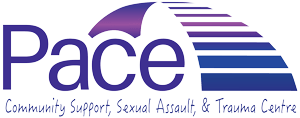Inter-Generational Healing:
A trauma informed approach to parenting (IGH or IGH-TIP)
IGH is a closed support group that provides participants opportunity to understand and work through underlying and often complex issues and challenges to safe and positive parenting. Participants will build or add to their toolkits for enjoying more positive outcomes in their parenting journey and strengthening parent /child relationships.
IGH is intended to help children develop and thrive to become safe, caring, engaged adults. To this end the group supports adults in the child’s life to be safe and caring parental/caregiver role models.
Who is the IGH group for?
IGH is open to all genders and may include adults in traditional and non-traditional parental or caregiver roles, including extended family, foster parents, or others. Participant parameters are generally:
- Adults in a parenting/primary caregiver role, who are concerned that trauma from their past, and/or trauma experienced by a child in their care, may be negatively impacting their relationships.
- Adults in an extended parenting/primary caregiver role (such as aunts, uncles, adult siblings, or care providers), supporting children who have been exposed to trauma.
- Adults supporting the parenting role of other adults, where trauma has been a significant factor in the family history.
The next Pace IGH group in Grande Prairie is scheduled to for Monday evenings from 6:30pm to 8:30pm beginning March 4th, and ending June 24th, 2024. Groups will be held one evening per week, 6:30 to 8:30 pm. For more information or to arrange for screening and an intake interview, please contact Pace at (780-539-6692) or email
Click here for our Program Poster >>
Inter-Generational Healing: A trauma informed approach to parenting
Knowing when to seek help can be a significant step in the healing journey.
The following list may help applicants decide if this group is the right fit for them. The list may apply to the adult, or child or both:
- Often feeling unheard, unvalued, or not respected.
- Repeatedly getting stuck in the same issues.
- Feeling under attack, defensiveness.
- Difficulty in focus or concentration.
- Difficulty identifying, discussing, or controlling feelings: often overwhelmed or flooded with emotion.
- Strong need to control relationships, other’s behaviors, and/or personal environment.
- Find it challenging to make, and or following plans.
- Engaging in risk taking, or impulsive behaviors.
- Having a hard time making good friendships or social connections.
- Caretaking of others at own expense, and/or other self-harming behaviors, such as addictions, physical harm, or eating disorders.
- Experiencing physical, emotional, or mental health issues.

